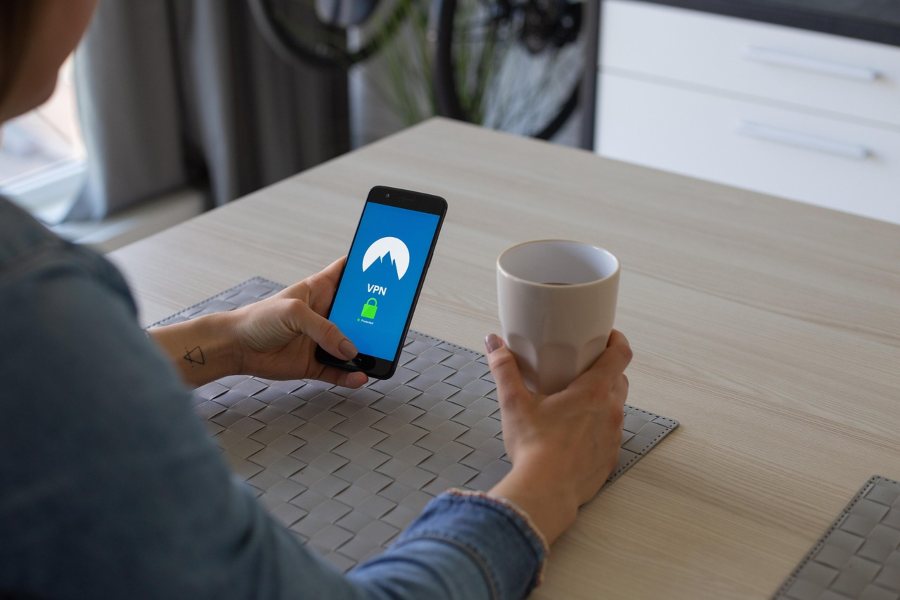
If you’ve ever wondered are all ip addresses unique, you’re not alone. The short answer is “it depends”—on the version of IP, the network you’re on, and the scope you’re thinking about. An IP address is an identifier for a network path at a moment in time, not a permanent, device-etched serial number. Public IPv4 addresses can be shared by thousands of users behind carrier-grade NAT. Private RFC1918 addresses repeat in homes and offices worldwide. IPv6 promises an astronomically large space where uniqueness is practical, but even there, services may intentionally share an address through anycast.
To really answer, are all ip addresses unique, you have to zoom in on context: private vs. public, IPv4 vs. IPv6, unicast vs. anycast, and whether you’re measuring uniqueness inside a LAN or on the public internet. This article breaks that down, shows why it matters to security, SEO, app reliability, and deliverability, and gives checklists to test your own environment. By the end, you’ll know exactly when are all ip addresses unique is true, when it’s false, and how to design around it.
Are all IP addresses unique? Not universally. Inside private networks, the same IPv4 ranges repeat everywhere. On the public internet, many users share one IPv4 address via NAT, while IPv6 can assign unique global addresses. Some services deliberately share a single anycast IP across many servers. Uniqueness depends on scope, protocol (IPv4/IPv6), and network design.
IP address uniqueness explained for real networks
The question are all ip addresses unique, sounds binary, but uniqueness lives on a spectrum defined by scope. Within your home Wi-Fi, your phone’s private IPv4 is unique on that LAN, yet millions of homes reuse the exact same numbers. On the wider internet, your household likely presents one shared public IPv4, so multiple devices appear as a single address. IPv6 shifts the balance: it’s designed to give end devices globally routable, effectively unique addresses, but even then, operators can choose designs that aggregate or share.
Start with IPv4. The public v4 space is small, so networks conserve it with NAT. Your laptop might be 192.168.1.23 internally, while your ISP assigns your router one public address. Outbound flows get rewritten so websites see the router’s IP. In this sense, are all ip addresses unique is false for end devices on IPv4: many appear to share a single external identity. Private addressing makes local uniqueness easy but global uniqueness impossible—by design.
IPv6 reimagines the model. A typical /64 LAN can hand every device a global unicast address. That means your phone can have a routable address that’s, for practical purposes, unique on the public internet. Privacy extensions rotate the interface identifier, improving tracking resistance without breaking connectivity. Here, are all ip addresses unique can be closer to “yes,” at least for unicast. Still, it depends on how admins delegate and on whether upstream networks aggregate routes behind load balancers or anycast.
IP address uniqueness explained — NAT IPv6 and anycast
Many people assume each IP maps to one device, but it depends on the network path and routing model. Here’s when are all ip addresses unique—and when they aren’t—across NAT, private ranges, IPv6, anycast, and shared egress.
Public IPv4 under NAT: uniqueness collapses
In most consumer setups, many devices share one public IPv4. NAT preserves ports to multiplex flows. In this scenario, are all ip addresses unique to individual devices? No—uniqueness collapses at the public edge, even though each device remains unique inside the LAN.
Private IPv4 (RFC1918): unique locally, duplicated globally
Addresses like 10.0.0.0/8 or 192.168.0.0/16 repeat everywhere. They’re unique per local network, not across the internet. So are all ip addresses unique globally? With private IPv4, definitely not.
IPv6 global unicast: practical uniqueness
IPv6 offers vast space. Devices typically receive global addresses; tracking can rotate identifiers. Here, the answer to are all ip addresses unique is closer to “yes,” assuming unicast and normal routing, though operators may still deploy Anycast or NAT64/NPTv6 in specific cases.
Anycast and load balancers: shared identity, distributed reality
CDNs and DNS roots advertise the same IP from multiple sites. The IP is one; the servers are many. Functionally efficient, but it means are all ip addresses unique does not imply one device per address.
How to assess uniqueness in your setup (hands-on checklist)
Not sure if your network shows one device per IP or many? Use this quick checklist to see when are all ip addresses unique applies in your setup—both on the LAN and at your public egress.
- Map your scopes (LAN vs. WAN).
Decide which “unique” you care about. Inside the LAN, a device’s private IPv4 or link-local may be unique. On the internet, egress IP is what websites see. Without this scope, you can’t answer are all ip addresses unique in a useful way. - Check your public egress.
Visit “what is my IP” from two devices on the same Wi-Fi; compare results. If they match, NAT is in play and the devices share one public identity. Here, are all ip addresses unique per device? Externally, no. Internally, yes. - Inspect IPv6 presence.
If your ISP provides IPv6, run ipconfig/ifconfig to list global unicast addresses. In IPv6-enabled homes, each device often has its own globally routable address. In that case, are all ip addresses unique becomes “usually for unicast”—subject to privacy rotation and policy. - Identify anycast or load balancers.
For a public service you run, does one IP terminate in multiple regions? Traceroute and dig against DNS can hint at Anycast. If one address fronts many POPs, then the service’s answer to are all ip addresses unique is intentionally “shared.”
Why IP uniqueness matters (security, SEO, deliverability, UX)
Uniqueness shapes risk and reputation. If many users share one egress, a single bad actor can taint the address, triggering CAPTCHAs or outright blocks. In contrast, a dedicated IP for outbound email can protect sender reputation and improve deliverability, though content and authentication still rule. For security analytics, assuming are all ip addresses unique per user is dangerous; you must correlate with device fingerprints, sessions, and geography.
Marketing and SEO teams should understand that multiple visitors may appear from a shared office or carrier egress. If you gate content based on “new vs. returning by IP,” you’ll get skewed results. CDNs exploit non-uniqueness deliberately: Anycast brings content closer to users and improves latency while one address represents a global fleet. When auditing a CDN, ask whether are all ip addresses unique at the server level—usually not; it’s a feature, not a bug.
For product UX, IP-based rate limits work best with leeway. Locking an entire carrier egress can accidentally punish thousands. Blend IP with account behavior, tokens, and device posture. And remember that privacy tools and mobile CGNAT mean are all ip addresses unique is rarely a safe assumption for identity. Design with humility: treat the IP as a useful but noisy signal, not a ground truth.
Planning for IP uniqueness—an engineer’s checklist
Use this engineering checklist to design systems that treat IPs realistically. It frames “are all ip addresses unique” by scoping uniqueness, preferring IPv6, combining identity signals, and accounting for shared egress and churn.
Define the scope of “unique”
Write whether you mean LAN-unique, org-unique, or internet-unique. Without this, are all ip addresses unique is unanswerable.
Prefer IPv6 where feasible
IPv6 restores practical uniqueness to end devices, easing peer-to-peer, telemetry, and observability, while retaining privacy with rotating IDs.
Combine signals
Use IP as one factor among cookies, device IDs, and auth. Don’t gate core security solely on are all ip addresses unique.
Build rate limits with context
Scope quotas per user/account, not just per IP. Add grace for shared egresses like carriers and universities.
Choose dedicated IPs deliberately
For email or high-risk APIs, consider dedicated egress to isolate reputation. For web hosting, shared IPs with SNI are usually fine.
Conclusion
So, are all ip addresses unique? Not universally. IPv4 with NAT collapses many devices into one apparent identity. Private IPv4 repeats globally. IPv6 brings back practical end-device uniqueness, while anycast and load balancers intentionally share addresses for performance and resilience. Treat IPs as context, not identity. Design systems that respect the limits of uniqueness, and you’ll ship more reliable, secure, and user-friendly experiences. In short, IP uniqueness is scoped, time-bound, and policy-driven—not absolute.
FAQ’s
Are all ip addresses unique inside my home network?
Locally, yes—your router’s DHCP hands out unique private addresses on that LAN. But those same private numbers repeat in homes worldwide.
Does IPv6 make all addresses unique?
IPv6 enables practical uniqueness for unicast, yet operators can deploy anycast or perform address translation in niche cases. Privacy extensions also rotate parts of an address.
Can a single IP represent many servers?
Yes. Anycast and load balancers let one IP front many machines or regions. It’s common for CDNs, DNS, and large websites.
Why does my IP change?
DHCP lease renewals, ISP policy, mobile tower handoffs, and VPN reconnects all change addresses. Uniqueness isn’t permanent; it’s a current routing fact.
Is a unique IP better for SEO or email?
A dedicated outbound IP can isolate email reputation. For web SEO, shared IPs are fine—content quality, performance, and proper HTTPS matter more than unique addressing.





